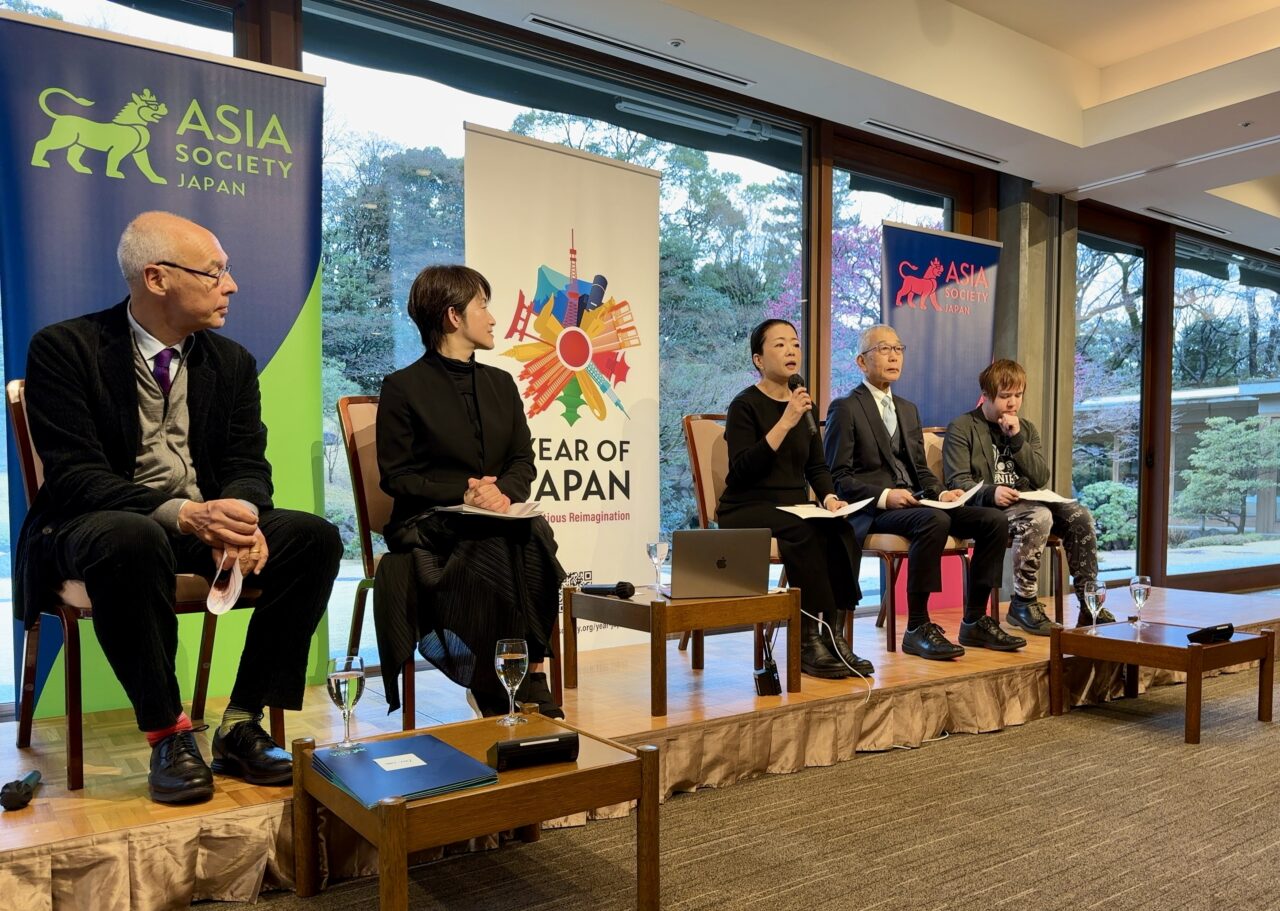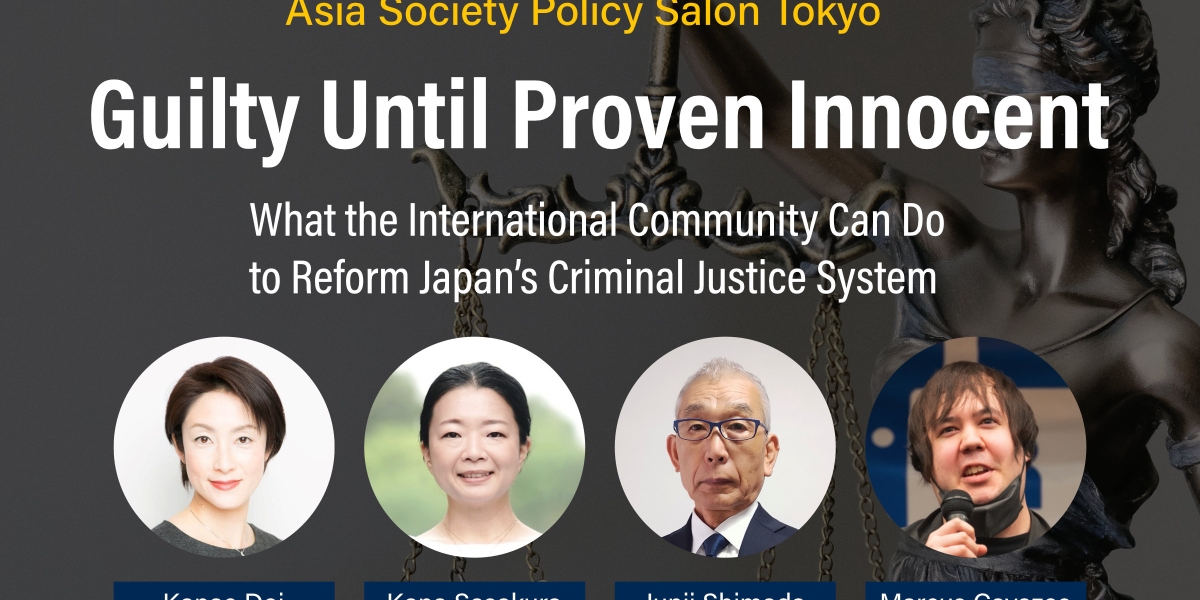Speech by Professor Kana Sasakura, the secretary general of Innocence Project Japan, at the Asia Society Policy Salon Tokyo titled “Guilty Until Proven Innocent”
イノセンス・プロジェクト・ジャパンの事務局長・笹倉香奈教授が2024年2月22日、Asia Society Policy Salon Tokyo “Guilty Until Proven Innocent” で英語スピーチを行いました。日本の人質司法の現状を簡潔に英語でまとめた内容のスピーチになっています。
February 22, 2024
The hostage justice contributes to wrongful convictions in Japan. Looking at past cases, it is clear that the major cause of wrongful convictions in Japan is false confessions. Why are there false confessions? Because the focus of investigation in Japan is to get suspects’ confessions. The Hostage Justice is used to get a confession.
The Japanese system allows up to 23 days of pre-indictment detention for each independent charge without the possibility of bail. The suspects are detained in police cells, notably called Daiyou- Kangoku in the international human rights community. During this whole time, it is interpreted by the police and the prosecutors that detained suspects have a duty to be interrogated, meaning they cannot refuse or leave the interrogation room. Even if they remain silent, questioning does not stop.
These interrogations happen without an attorney present and until recently there was no duty to audio or video recording of these interrogations. Recently in most serious cases recording became mandatory but these consist only 2-3 % of all criminal cases.
During these interrogations, statement “dossiers” are produced. Dossiers are not verbatim transcripts. They are written down by interrogators and signed by the accused. They can be used as evidence at trial as one of the broad exceptions to the hearsay rule.
During detention, a judge can impose a ban on communication between detained suspects/defendants and families, friends, etc. It is devastating enough to be arrested and detained, but you can only talk to your attorney if this ban is imposed.
There is no bail during these 23 days of detention, and when the suspect is arrested on another “different” charge, the 23 days will be repeated.
After the suspect is indicted 23 days later, they can apply for bail. However, if the judge thinks that there is a risk of flight or destruction of evidence, the bail may be denied. The risks are interpreted very broadly: for example, if you are from a country outside of Japan, you will have a risk of flight. If you deny the charges or remain silent, you will have the risk of destructing evidence.
All these pressures are designed to bring the accused to their knees and obey what the police or the prosecutors tell you to do. It is as if you are being a hostage and only freed when you confess. You are giving up your liberty for not confessing. Innocent people will be detained longer because they will deny the charge.
This situation is called Hostage Justice. No wonder most of the defendants confess, and thus false confessions became the major cause of wrongful convictions. Using these confessions, the Japanese conviction rate is a staggering 99.8 %.
Looking at this list of cases which were exonerated in Japan through retrial, when we look at how many of these cases were with false confessions…. It is 21 cases out of 25. The evidence is clear.
If you compare the situation in a typical felony case in the United States, the distinction becomes quite clear. Of course, the American criminal justice itself has many problems, but at least I do not think the American system is designed to elicit confessions. When you are arrested, you are given Miranda warnings. You will be taken to a judge within 48 hours and then you are eligible for bail. Interrogations don’t last for days like Japan, and if you decide to remain silent the interrogation must stop immediately. When an interrogation is conducted, our attorney can be with you.
One case of false confession in Japan, which is well known internationally, is the case of Iwao Hakamata, a 1966 murder case and whose retrial is now in progress. This was a case of death penalty and Hakamata had been detained for 48 years, 34 of which on death row. Hakamata made a false confession because of brutal and lengthy interrogations. This case illustrates the serious consequences that the hostage justice brings.
This case was from 1966 but in more recent cases, the situation has not changed much.
There are many examples. Mr. Shimada and Mr. Cavazos’s cases are two of these examples.
Another recent case is the case of Mr. Yamagishi. Mr Yamagishi is the former president of Osaka-based real estate company Pressance Corporation. Yamagishi was arrested in December 2019 on suspicion of embezzling 2.1 billion yen ($17 million) from a school operator called Meijo Gakuin in Osaka Prefecture. Investigators said Yamagishi colluded with the former chair of Meijo Gakuin to steal deposit money gained from the sale of a land plot.
He denied the charges and was detained for 248 days. He had to resign so as not to damage his company. However, the Osaka District Court acquitted Yamagishi in October 2021.
We all remember the Ghosn and Kelly’s cases. Ghosn was detained for 108 days, Kelly 37 days in solitary confinement and was subject to intense interrogation. Ghosn’s attorney revealed that the interrogation continued every day for an average of 7 hours per day.
Recently, a British Court criticized the Japanese practice in the Chappell case. This case involves three British men who were detained after they flew back to Britain over their alleged involvement in a 2015 robbery of Harry Winston in Ginza, Tokyo. Whether the three will be transferred to Japan is being discussed in Britain as we speak, because Britain does not have an extradition treaty with Japan. In this case, the men’s defense attorneys has been arguing that a handover could raise human rights concerns, namely “hostage justice”.
The Magistrate’s court ruled that it has concerns about the Japanese system which have been criticized by reports from UN an NGO bodies and rejected the extradition.
Have there been reform efforts? Yes. We have had two major criminal justice reform in the last 20 years, but both have failed to resolve this issue. The Ministry of justice has a webpage Frequently Asked Questions on the Japanese Criminal Justice System which was written after the international outrage against hostage justice in 2020 when the world learned about the Nissan cases. It states as follows: “the Japanese criminal justice system does not force confessions by unduly holding suspects and defendants in custody. It is therefore not accurate at all to criticize the Japanese system of being a “hostage justice” system. In Japan, there are strict requirements and procedures stipulated in law with regard to holding suspects and defendants in custody, with due consideration given to the guarantee of human rights”.
The cases I have talked about as well as Mr. Shimada and Mr. Cavazos’s cases illustrate the long-standing “hostage justice” system, in existence has adverse implications for Japanese business and tarnishes the country’s international reputation. This system may act as a deterrent for foreign business executives considering relocation to Japan, especially as many non-Japanese citizens become victims of this system.
Everyone knows that you are innocent until proven guilty. You should be treated as an innocent person. The norm is internationally established. You have a right to remain silent. This is also internationally recognized human right. Is the practice in Japan consistent with these rules?
Thank you for this opportunity to speak today, and with that, I conclude my speech.



